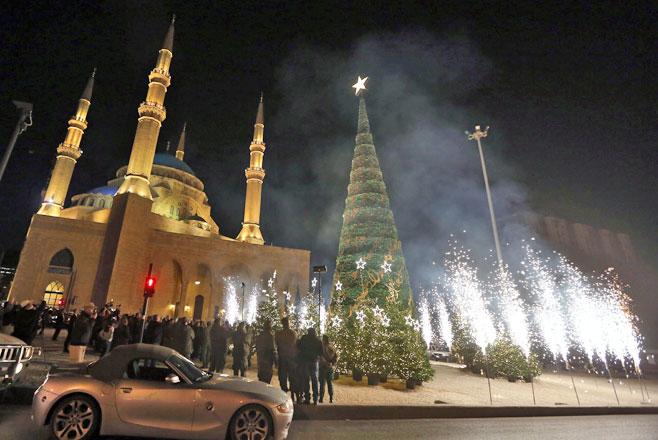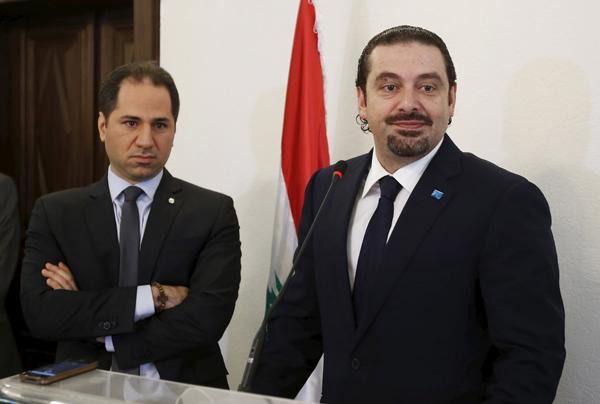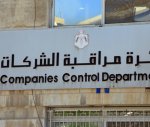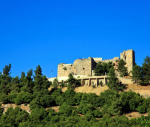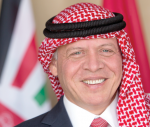You are here
In unexpected twist, Assad ally may be Lebanon’s next president
By Reuters - Nov 30,2015 - Last updated at Nov 30,2015
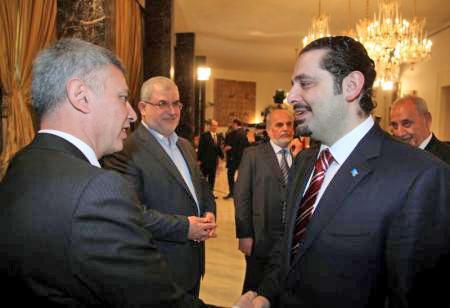
Lebanon’s then-prime minister Saad Al Hariri (right) chats with Lebanese Christian politician and leader of the Marada Party Suleiman Franjieh (left) as Head of Hizbollah’s parliamentary bloc Mohamed Raad (2nd left), MP Assaad Hardan (centre) and Lebanon’s Parliament Speaker Nabih Berri listen to them during a new session of the national dialogue between political leaders at the Presidential Palace in Baabda, near Beirut in this file April 15, 2010 photo (Reuters photo)
BEIRUT — Lebanon's political crisis has taken a dramatic turn with the possibility that a friend of Syrian President Bashar Assad could become president in a power-sharing deal aimed at breathing life back into the paralysed state.
The idea of Suleiman Franjieh, a childhood friend of Assad, becoming head of state has taken aback many Lebanese, not least because of who tabled it: Saad Al Hariri, a Sunni politician who leads an alliance forged from opposition to Syrian influence in Lebanon. He would become prime minister under the deal.
It is no less startling because of the backing it would require from Saudi Arabia and Iran, rival states that wield decisive influence over Lebanon's competing factions and which are in conflict elsewhere in the region, including in Syria.
As the war escalates in Syria, with Iran and Saudi Arabia increasing their support for Assad and his enemies, a new deal for Lebanon seems unlikely to signal any broader understanding to settle regional conflicts.
But it would point to a desire to preserve a minimal degree of stability in Lebanon. While badly affected by the Syrian war that has triggered militant attacks, driven a million refugees over the border, and fuelled a political crisis, Lebanon has avoided the kind of civil strife some had feared.
Yet the country has been without a president for 18 months and a unity government led by Prime Minister Tammam Salam is barely functioning. The Hariri proposal is the most serious effort yet to resolve that political stalemate.
Ali Akbar Velayati, a top adviser to Iran's supreme leader who was on a visit to Beirut on Monday said after meeting Salam that hopes for the election of a president had increased.
"We hope to witness in the immediate future the selection and election of a president of the republic," a statement from Salam's office quoted Velayati as saying.
But the appointment of Franjieh faces big challenges including resistance from politicians who campaigned against Syrian influence in Lebanon, and winning over other leaders who also covet the post reserved for a Maronite Christian, notably Michel Aoun and Samir Geagea.
If it fails, analysts believe the chances of a settlement will be even more remote, meaning no imminent end to a crisis of government that has in recent months left trash to pile up in the streets and the army without salaries.
Christian rivalries
Though the proposal has not been made public by Hariri, it has been reported in Lebanon and confirmed by political sources.
Franjieh has said the proposal for him to become president is serious, but not official. The deal is expected to include an agreement on arrangements for new parliamentary elections.
Any power-sharing deal needs to reconcile Lebanon's two main camps: the March 8 alliance dominated by the Iranian-backed Shiite group Hizbollah, and the Hariri-led March 14 alliance.
The toughest part is winning over other Christians on both sides. Geagea and Aoun are the official candidates of the rival alliances, and a Franjieh presidency risks exacerbating historic rivalries among the Christians.
Hizbollah has repeatedly stated its support for the candidacy of Aoun, 80, its ally since 2006 and head of the biggest Christian bloc in parliament. Yet Franjieh, whose ties to the group are much older, may be a preferable choice for the group as Hizbollah wages war in Syria in support of Assad.
By backing Franjieh, Hariri meanwhile risks fracturing the March 14 alliance which was forged a decade ago out of opposition to Syria in the wake of the assassination of his father, Rafik Al Hariri.
"The ones with a positive view of this settlement argue that a Franjieh presidency will reassure March 8 and Hizbollah, while the presence of Hariri in the palace as prime minister will reassure the other camp. This is what is being marketed behind the scenes," said Nabil Boumonsef, a political commentator.
"There has already been great damage, particularly in the March 14 camp — more than in March 8 — because Franjieh is the clearest ally of the Syrian regime and the Assad family in Lebanon," Boumonsef said. Hizbollah was meanwhile like "a father being asked to choose between two sons", he added.
Hunting with
Basil Assad
Franjieh's ties to the Assad family date to his childhood when his grandfather, the late President Suleiman Franjieh, took him on trips to Damascus to visit his friend, the late President Hafez Assad. Franjieh used to hunt with Bashar Assad's older brother, Basil, who died in a 1994 car crash.
He was orphaned in 1978 when a Christian militia attacked his family home in northern Lebanon, killing his father, mother and sister. Geagea has been accused of responsibility for that civil war time attack, though he has denied participating.
Franjieh, 50, featured prominently in the period of Syrian domination of Lebanon that followed the 1975-90 war, serving as a government minister several times. That era ended with the withdrawal of Syrian forces from Lebanon in 2005 following an international outcry at the Rafik al-Hariri assassination.
Franjieh was serving as interior minister at the time.
Hariri, 45, assumed the mantle of Lebanon's most influential Sunni politician after his father's death. He left Lebanon in 2011 after his government was toppled by the March 8 coalition. He has made only two, short trips to Lebanon since then.
Boutros Harb, a March 14 politician with presidential ambitions, said he had no personal problem with Franjieh. "But will he bring Bashar Al Assad with him to Baabda Palace, or will he be president for all Lebanese?" he asked on Twitter.
Baabda is the location of the presidential palace.
Speaking last week, a senior figure in Hariri's Future Movement, his cousin Ahmad Al Hariri, said the only choice for Lebanese was a "brave settlement" to end the repercussions of political "obstruction" which he said had turned into a time bomb, the Hariri-owned Al Mustaqbal newspaper reported.
Franjieh's candidacy would certainly be welcomed by Parliament Speaker Nabih Berri, a powerful Hizbollah ally who heads the Shiite Amal Movement and whose fractious relationship with Aoun is no secret.
Franjieh was seeking to win the support of other Maronite politicians, a senior March 8 politician said. "Saad Al Hariri has turned everything upside down by announcing his support for the candidate closest to President Bashar Al Assad and Hezbollah, and has thrown the ball into the others' court."
Franjieh held a "friendly meeting" with Aoun's son-in-law, Gebran Bassil, on Sunday night, a statement from Franjieh's Marada Party said.
Franjieh told Bassil he still supported Aoun's candidacy "if there was a real desire to agree on General Aoun". "But if [Aoun's] nomination continues simply to obstruct Franjieh's nomination, this is another matter."
Related Articles
BEIRUT — Former Lebanese prime minister, Saad Hariri, said on Sunday he would continue to pursue a power-sharing solution to the country's 1
BEIRUT — Former Lebanese prime minister Saad Al Hariri said on Monday he was committed to backing his rival Suleiman Franjieh for the presid
BEIRUT — Lebanon's Maronite patriarch on Saturday urged the political factions to elect a new president, effectively throwing his weight beh


